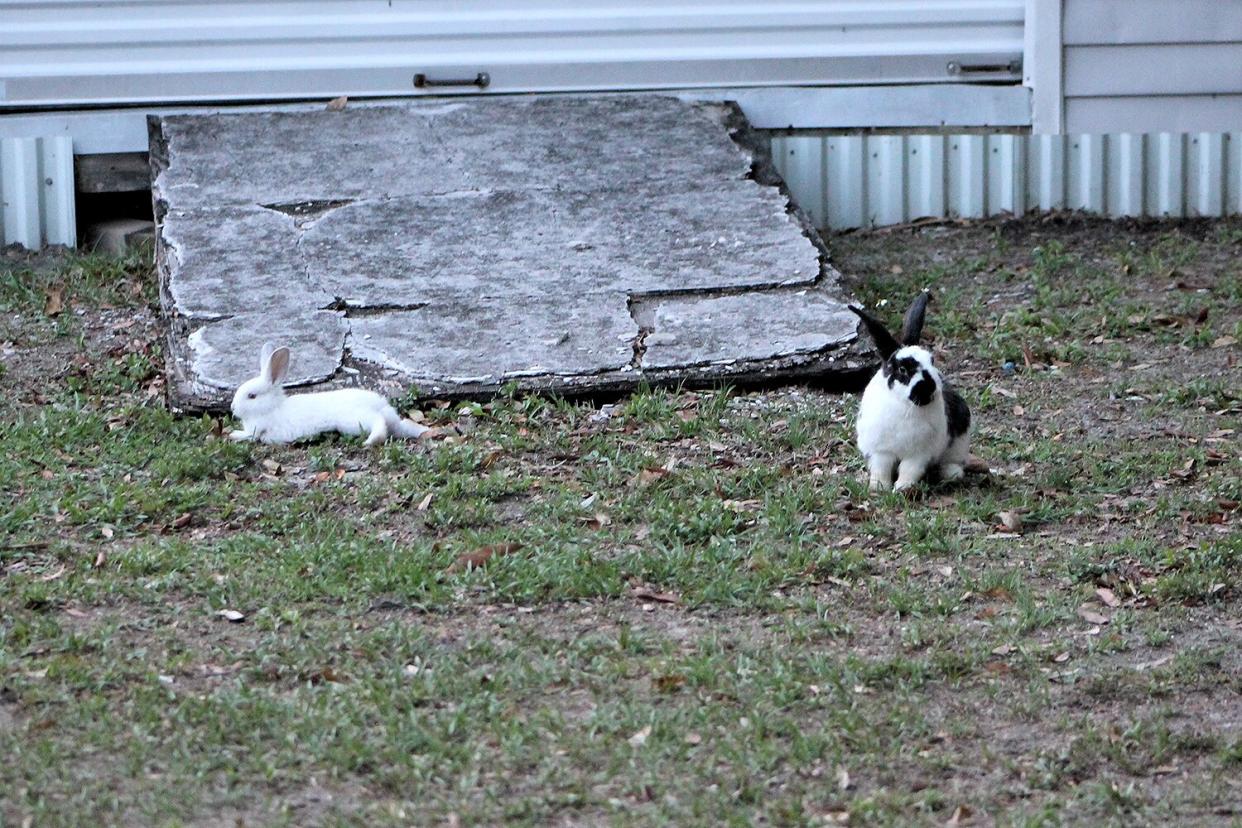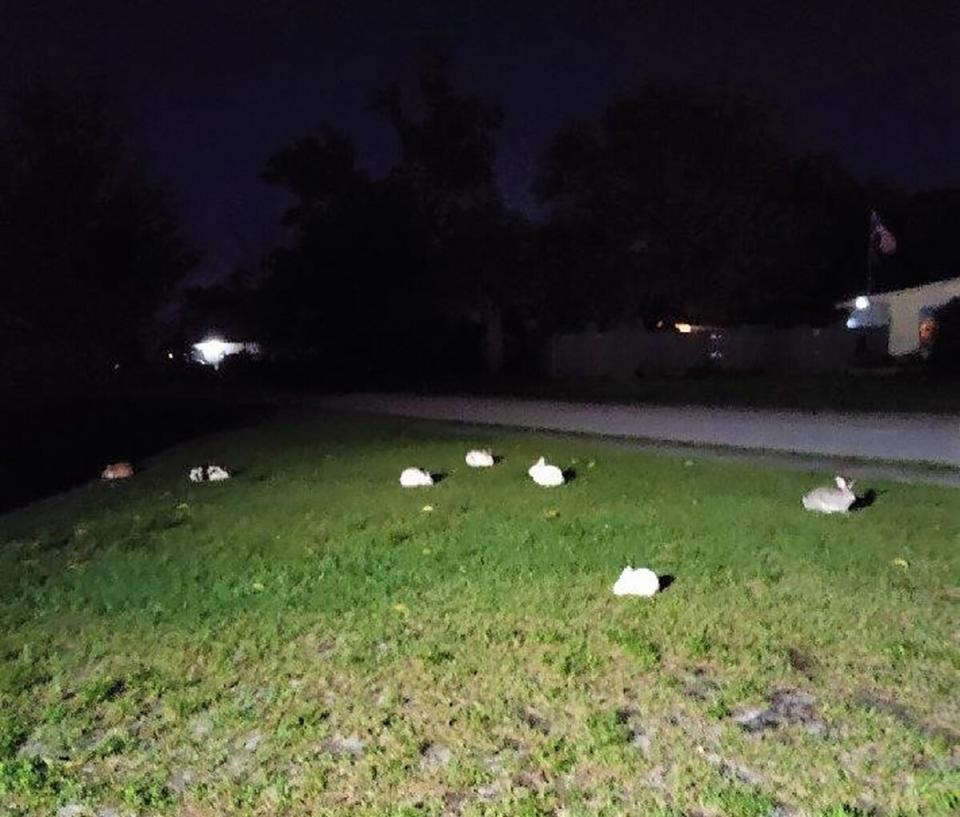Abandoned Pet Bunnies Overrunning Florida Neighborhood: 'They're Everywhere You Look'

Courtesy of Amy Bernauer
Dozens of domestic bunnies residing in a Florida neighborhood are living up to their reputation by breeding like, well, rabbits — so fast that they have started overrunning the area and are popping up "everywhere."
The wave of rabbits started in November when an unknown individual released three unwanted pet bunnies in the Azalea Park area near downtown Orlando. Then nature took over, according to Sue Chairvolotti, the adoption coordinator at Orlando Rabbit Care and Adoptions.
"They dug their way out of the backyard, and the rest is history," she tells PEOPLE.
There are now about 50 rabbits of varying breeds — Chinchillas, Havanas, English spots, ruby-eyed whites — nibbling on grass and procreating throughout the Azalea Park area, Chairvolotti says.
A rabbit can produce 1-14 babies every 30 days or so and can get pregnant again the day she gives birth. According to Dana Krempels — a senior lecturer at the University of Miami's Biology department — just a single pair of rabbits can spawn almost 4 million offspring in four years.
RELATED: Bunnies As 'Comfort Animals': Meet the 16-Year-Old Boy Training Rabbits At His Island Sanctuary
At Azalea Park, the numbers are starting to add up. "When you're first coming down the block, you'll see little ears coming out of the grass," says Stephanie Gal'lino, one of the rescue group's volunteers.
"They're in yards, under sheds, next to cars, running down the street," Gal'lino tells PEOPLE. "They're everywhere you look."
The ever-growing group of rabbits is domestic and not wild, so they don't know how to fend for themselves and are falling victim to lice, ear mites, botflies, teeth overgrowth, and the danger of getting run over by cars, Chairvolotti says.

Courtesy of Stephanie Gal'lino
"They do not have survival skills like a wild rabbit," she adds. "Leaving them out there is kind of cruel … a lot of them are going to die, and not in a very good way."
Neighbors have complained that the horde is "getting in the way of their everyday life," demolishing their vegetable gardens, spooking their dogs, and causing disturbances with people who want to eat the bunnies or feed them to their snakes, Gal'lino says.
RELATED: A Friendly Reminder That Adorable Bunnies Are Pets for Life (Not Just for Easter)
The rescue group, which is already overcapacity, is now pleading with the community to take in the rabbits as fosters until they can be treated and adopted.
Help is needed quickly, and en masse, she says.
"Wrangling rabbits isn't easy," Chairvolotti says. "Taking two or three isn't really helpful because there are four or five more in the backyard that are pregnant, so it's like treading water."
In addition to foster homes and monetary donations, the organization also hopes someone in the community will donate a large facility to house all the animals temporarily.
Fostering is one way to see if full-time ownership is a good idea, animal advocates say, but especially at this time of year, they warn against buying a rabbit on impulse.
RELATED: Rabbit Named Cookie — Who Loves to Skateboard — Brings 'Smiles' to Children's Hospital Patients
Every year around Easter, bunnies are brought home but then quickly abandoned outside or returned to the shelter after the spring season ends, forcing shelters to euthanize rabbits in large numbers, per Reuters.
California banned the sale of rabbits and all other commercially bred domestic pets in 2019 to cut down on such whim adoptions, and New York is considering similar legislation.
The ASPCA tells PEOPLE that some cities also have local bans on the retail sale of rabbits, including Boston, Chicago, and New York City.

